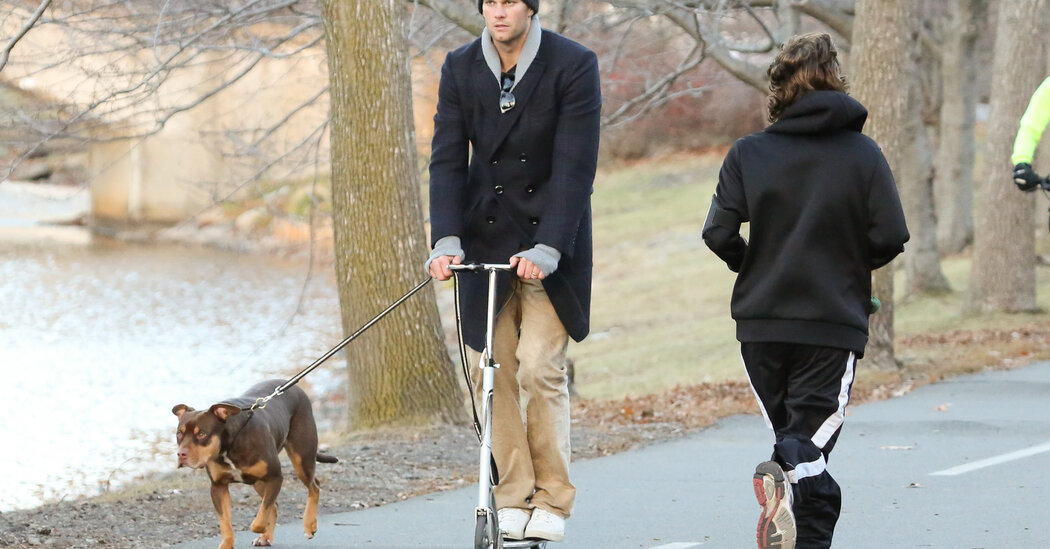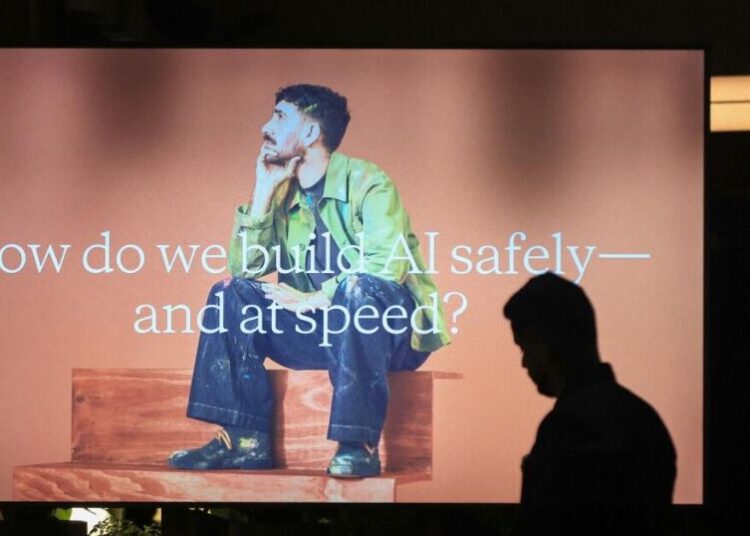
Are you an animal lover? Have you ever had to say goodbye to a beloved pet like a goldfish, a hamster, a cat or a dog? If so, how did you deal with that loss?
If technology had been available and affordable then, would you have chosen to clone your pet before it died? Why or why not?
In “Tom Brady Says He Cloned His Dog. Cue the Critics.,” Sopan Deb and Simar Bajaj write that the retired N.F.L. great is the latest celebrity to take this step:
In retirement, Tom Brady, the former star quarterback, found what he called a “second chance.”
Mr. Brady revealed on Tuesday that his dog Junie is actually a clone of another dog he and his ex-wife, Gisele Bündchen, shared that died in late 2023.
Mr. Brady shared the details of the cloning on Tuesday in a news release issued by Colossal Biosciences announcing that it had acquired Viagen, a biotechnology company. Viagen owns the rights to the technology that was used to clone Dolly the sheep in 1996. Mr. Brady, who is an investor in Colossal, said that he had worked with the company a “few years ago” and that the cloning process required a “simple blood draw” from the family’s aging pit bull mix, Lua, before she died.
“In a few short months, Colossal gave my family a second chance with a clone of our beloved dog,” Mr. Brady said.
Wait, you can clone a pet?
Scientists had long believed that mature cells, like heart cells or kidney cells, had specific functions and couldn’t be reprogrammed. But in the 1990s, a team of Scottish researchers cloned a sheep by taking a cell from its mammary gland; removing its nucleus, which contained the cell’s genetic material; implanting this nucleus into an empty egg cell; and spurring the cell to start dividing.
The scientists transferred the resulting embryo into a surrogate, which led to the birth of Dolly, the first mammal to be cloned from an adult cell, in July 1996.
In the nearly three decades since, dozens of animals have been cloned using the same basic principles. In 2005, South Korean researchers announced that they had cloned a dog for the first time.
Noting that other celebrities like Barbra Streisand and Paris Hilton have cloned a pet, the article explores whether it is really the same animal:
Experts emphasize that cloning does not resurrect a personality; it only creates a genetic twin.
A dog’s behavior, for example, is determined by both nature and nurture. Experts say that even if Mr. Brady’s cloned dog physically resembles its predecessor, it might not bond with Mr. Brady in the same way, and certainly won’t remember any of their old routines or shared experiences.
In a 2022 study of 1,000 cloned dogs, scientists found that about 2 percent of cloning attempts led to a living puppy. While about 20 cloned dogs died shortly after birth, the researchers did not otherwise find any cases of premature death or increased disease rates.
The greatest risk in animal cloning, according to Samuel Gorovitz, a philosophy professor at Syracuse University who specializes in medical ethics, is “self-deception.”
“There’s no harm to the pet being cloned, nor is there initial harm to the resulting pet,” Professor Gorovitz said in an email. “But that new pet will not be the beloved prior pet. At best, it will be similar in important attributes.”
Students, read the entire article and then tell us:
- What’s your reaction to the news that Tom Brady is the latest celebrity to spend large sums of money to clone a pet? Were you surprised? Delighted? Concerned?
- Would you ever consider cloning your own pet? Why or why not?
- Have you ever had to say goodbye to a beloved pet? If cloning technology had been available and affordable, would you have considered doing so? Or is learning to accept death a more important life lesson than trying to preserve a cherished companion?
- Mr. Brady says that cloning gave him a “second chance” with his beloved dog, Lua. However, the article points out that cloning “does not resurrect a personality; it only creates a genetic twin.” Does that distinction make a difference? Does it matter if cloning a pet is what Samuel Gorovitz, a philosophy professor at Syracuse University, calls a “self-deception”?
- Supporters of cloning say the technology could one day help to conserve endangered species, while some critics and animal rights groups urge pet lovers to adopt instead. Which arguments cited in the article — practical or ethical — do you find most persuasive?
- Beyond pets, what do you think about cloning technology in general? Do the potential benefits outweigh the dangers and the ethical concerns? If scientists could clone humans, would that change your moral calculus regarding animal cloning? What legal and ethical limits, if any, should be placed on cloning — not just for pets, but for humans and endangered animals?
Students 13 and older in the United States and Britain, and 16 and older elsewhere, are invited to comment. All comments are moderated by the Learning Network staff, but please keep in mind that once your comment is accepted, it will be made public and may appear in print.
Find more Student Opinion questions here. Teachers, check out this guide to learn how you can incorporate these prompts into your classroom.
Jeremy Engle is an editor of The Learning Network who worked in teaching for more than 20 years before joining The Times.
The post Would You Clone Your Pet? appeared first on New York Times.



